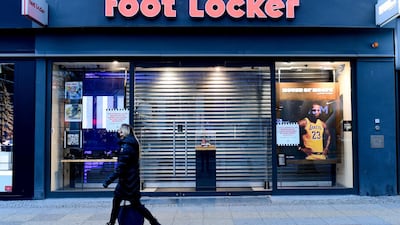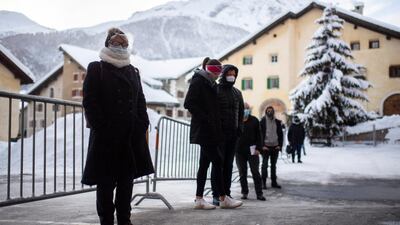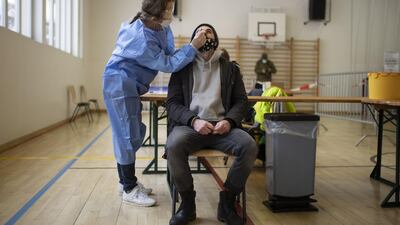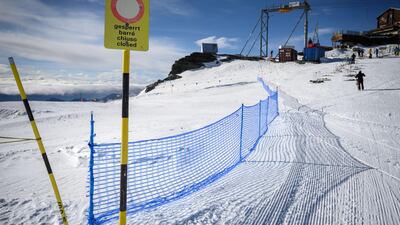Is your trip to the shop worth the chance of someone dying? That question is being put to Berliners as Germany experienced another bleak day for coronavirus deaths and the second wave continues to rip through the country.
A record 598 deaths and 29,875 new cases were reported on Friday, after the previous daily record of 590 deaths was set on Wednesday. The previous daily record of 23,679 cases was reported on Thursday.
The damning statistics prompted calls for tougher lockdown measures to be imposed before Christmas as authorities admitted the current “lockdown lite” restrictions were not having the desired effect.
Those measures saw pubs and restaurants close but shops continuing to trade. Loopholes have also allowed Germans to set up takeaway mulled wine stands and waffle stores, allowing groups of people to meet in the street.
Responding to the state of play, Berlin mayor Michael Muller fumed at those standing in the way of tougher measures.
“How many dead is a shopping experience worth to us?" he said. “How many deaths do we want to accept for a nice visit to a restaurant, for a candlelight dinner? How many dead for a movie? I want to hear specifically from those who are constantly criticising.”
Chancellor Angela Merkel piled pressure on state governments – which are responsible for imposing and lifting restrictions – to close schools before Christmas. “We are in a decisive, perhaps the decisive, phase of fighting the pandemic,” she said.
Health Minister Jens Spahn also warned that the country needed to act now so that Christmas didn’t become “a festival for the virus”.
“If we’re honest, the virus doesn’t take much account of whether we’ve all finished our Christmas shopping or not,” he said.
Interior Minister Horst Seehofer told Der Spiegel that a hard lockdown "needs to be immediate".
Ms Merkel is expected to meet state governors to talk over new measures this weekend. Several states have already announced new restrictions independently, including worst-hit Saxony, in Germany’s east, which will close schools and most stores from Monday until January 10.
Prospects of a united approach appear to be rising, though, as ever more governors say the situation is alarming.
“We need a pan-German response, not a response just for individual states, and we need a real turnaround for all of Germany,” said Armin Laschet, the governor of North Rhine-Westphalia, the country’s most populous state. “We all have the aim of reducing infection figures clearly and very quickly now, and we all know that can only succeed if we drastically reduce social contacts.”
In the spring, Germany managed to avoid the high number of infections and grim death tolls seen in other large European nations, and still continues to have a much lower overall fatality rate than countries such as Britain, France and Spain.
However, its new cases per 100,000 residents over the past 14 days are now higher than in France, Belgium and Spain, and about level with Britain, though still well below Italy, Sweden and many others, according to the European Centre for Disease Prevention and Control.
Robert Koch Institute president Lothar Wieler, who is leading Germany's pandemic response, said the country may be a victim of its own success. He said Germany handled the first wave of coronavirus so well that many people doubt the severity of the disease or even its existence.











